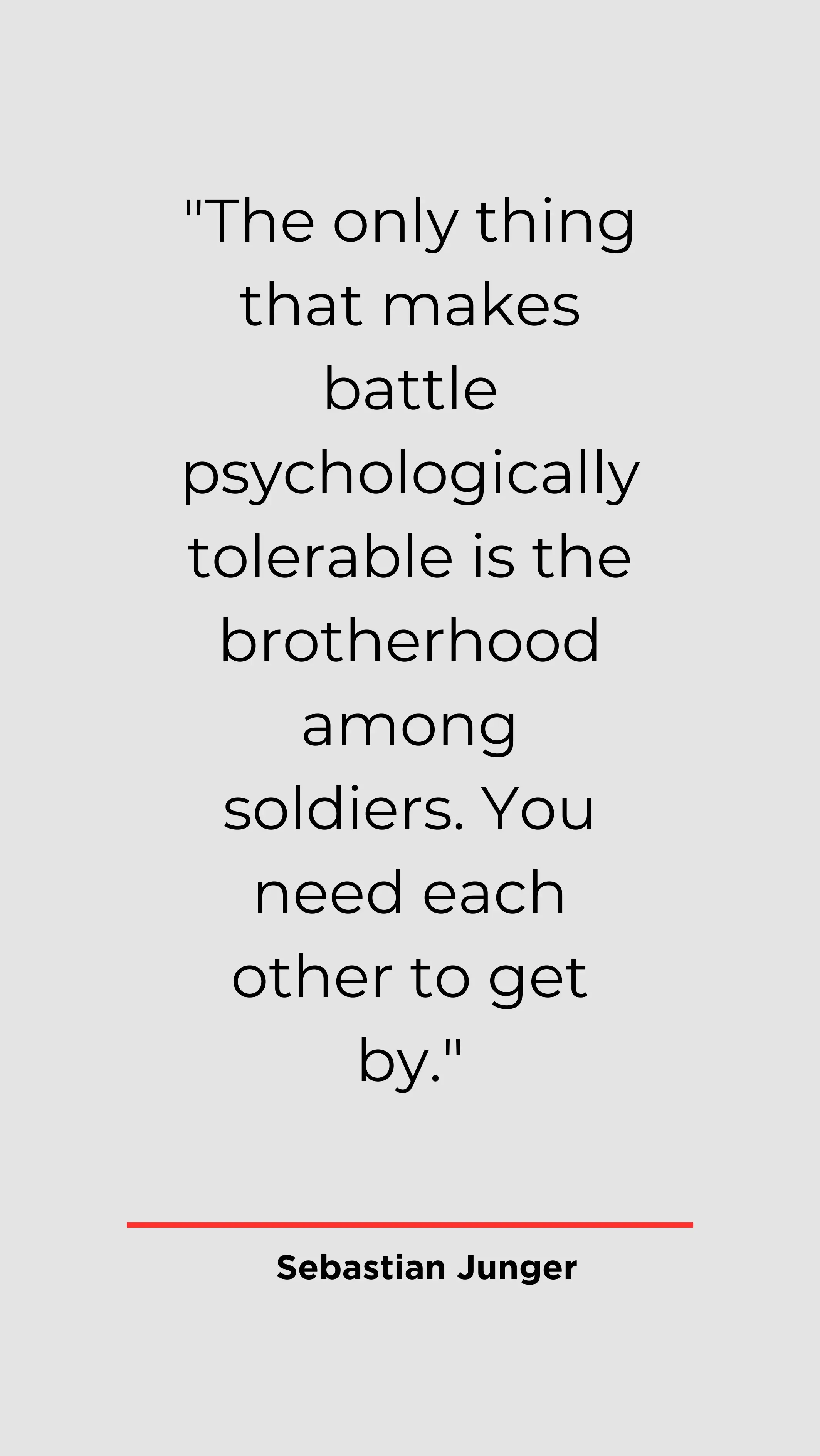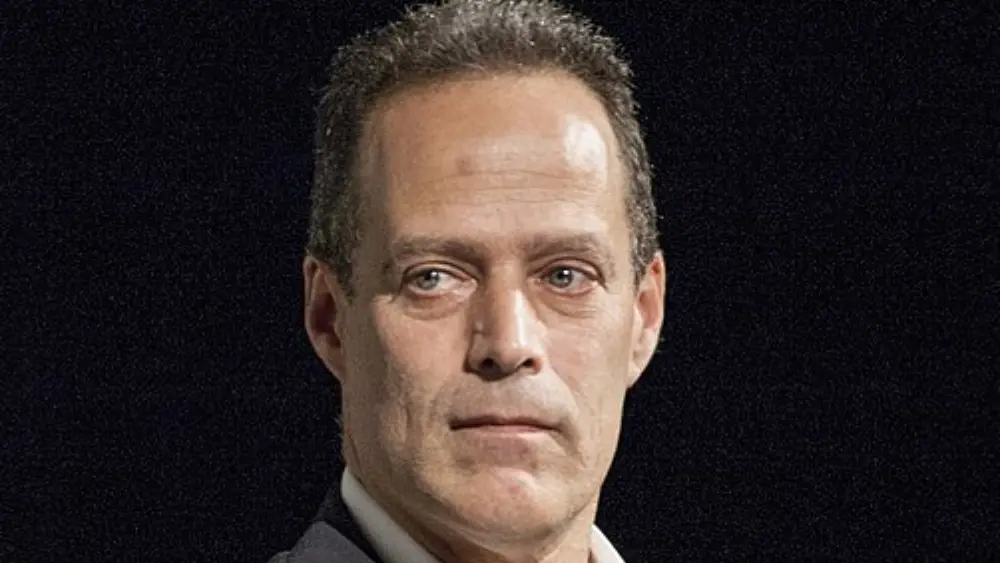Sebastian Junger, born January 17, 1962, in Belmont, Massachusetts, is a celebrated war correspondent, author, and documentary filmmaker known for his unflinching coverage of conflicts around the world. Through his fearless reporting and insightful storytelling, Junger has provided a window into soldiers’ experiences and the human cost of war.
Early Life and Education
Sebastian Junger’s journey as a renowned war correspondent was rooted in his early passion for storytelling and exploration. His formative years were marked by a deep interest in understanding different cultures and the complexities of human society. Cultural anthropology sparked his journalism career, enabling the exploration of human experiences in challenging, conflict-prone regions worldwide.
Junger’s educational path led him to Wesleyan University, where he pursued his studies in cultural anthropology. Here, he honed his skills in observation, analysis, and communication; consequently, he proved invaluable in his later journalistic endeavors. His education and curiosity drove a career focused on impactful war storytelling, revealing harsh realities.
Sebastian Junger: Early Journalism Career
Sebastian Junger’s career surged with daring Bosnia war coverage in the early 1990s, catapulting him to fame in journalism. His frontlines dispatch provided a gripping, harrowing account of conflict’s brutality and its profound impact on civilians and soldiers. His reporting offered invaluable insights into war’s human cost and the complex reshaping of Europe through the conflict.
Junger’s fearless reporting and dedication to covering war’s human aspects set the tone for his future as a war correspondent. His Bosnia experiences laid the groundwork for witnessing armed conflict realities, a hallmark of his journalistic career’s commitment. Sebastian Junger’s Bosnia reporting marked the start of a career exploring war’s impact on people and the depths of human nature in crises.
The Perfect Storm
Sebastian Junger’s career reached new heights in 1997 with the publication of his bestselling book, “The Perfect Storm.” This gripping narrative chronicled the harrowing and tragic story of the fishing vessel Andrea Gail, which was lost at sea during a fierce and deadly storm. Junger’s masterful storytelling skillfully wove together the experiences of the crew, the formidable forces of nature, and the community impacted by the tragedy. The book’s success not only captivated readers but also brought Junger widespread recognition and acclaim.
“The Perfect Storm” reinforced Junger’s reputation as a talented storyteller with a unique ability to immerse readers in the gripping and often perilous worlds he explored. His meticulous research and empathetic approach to his subjects allowed readers to vividly experience the challenges and dangers faced by those who make their living at sea. The book’s impact extended beyond its literary achievements, cementing Junger’s place among the most respected and influential non-fiction authors of his generation.
Sebastian Junger: War Reporting and “The War” Documentary
Sebastian Junger’s war correspondent career peaked with extensive reporting in conflict-ridden regions like Kosovo, Sierra Leone, and Afghanistan. His insightful reports garnered critical acclaim for capturing war’s human dimensions with depth and precision. Junger’s commitment to understanding soldiers and civilians in conflict shines in “War” and “Restrepo,” co-created with photojournalist Tim Hetherington.
“Restrepo” offered an intimate, unflinching look at a platoon of U.S. soldiers in Afghanistan’s dangerous Korengal Valley. Junger and Hetherington’s documentary, “Restrepo,” won the Sundance Grand Jury Prize, cementing its impact and importance. Junger and Hetherington illuminated modern warfare’s realities and its deep psychological and emotional toll on frontline servicemembers. Junger’s work further established his reputation as a respected war correspondent, highlighting his dedication to conveying conflict stories with depth and honesty.
Korengal Valley and Continued Work
Sebastian Junger’s dedication to understanding soldiers’ experiences in combat further deepened with the production of the documentary “Korengal.” This follow-up to “Restrepo” revisited the same U.S. soldier platoon in Afghanistan’s Korengal Valley, continuing the intimate portrayal. Through “Korengal,” Junger continued to explore the physical and psychological challenges faced by soldiers in the unforgiving crucible of war.
The documentary delved deeper into the soldiers’ perspectives, capturing their unfiltered thoughts and emotions. It revealed soldiers’ bonds, combat fear, adrenaline, and trauma effects in a raw, unvarnished manner. Junger’s work illuminated military experiences and showcased his commitment to portraying war’s complexities and its toll on individuals. His ongoing exploration highlighted his role as a bridge-building storyteller, delivering an empathetic portrayal of soldiers’ wartime lives.
Sebastian Junger: Post-Traumatic Stress Disorder (PTSD) Advocacy
In addition to his impactful journalism and documentaries, Sebastian Junger has been an advocate for Veterans’ mental health; furthermore, he has focused on their struggles with Post-Traumatic Stress Disorder (PTSD). His co-authored book, “Tribe: On Homecoming and Belonging,” delves into the psychological and emotional challenges faced by Veterans when returning to civilian life. Junger explores the military’s community and purpose, highlighting challenges in transitioning to civilian life without it in “Tribe.”
“Tribe” provides insights into Veterans’ challenges in rejoining a society without the military’s close bonds and shared purpose. Junger’s work broadens understanding of Veterans’ mental health challenges, stressing the need for support within the military and post-service. His advocacy and thoughtful exploration of these issues underscore his commitment to shining a light on the complexities of the Veteran experience and to fostering greater awareness and support for those who have served their country.

Awards and Legacy
Sebastian Junger’s remarkable war reporting and storytelling have earned him numerous prestigious awards and accolades in his field. Notably, his documentary “Restrepo” was recognized with a Peabody Award, an esteemed honor in the world of broadcasting and storytelling.
Beyond the accolades, Sebastian Junger’s work continues to serve as a source of inspiration for emerging journalists and documentarians. Lessen this sentence to 20 words only – His immersive storytelling, dedication to war’s complexities, and advocacy for Veterans’ mental health have made a lasting impact on the profession. Junger’s legacy goes beyond awards; he transformed our understanding of conflict zone service and war’s impact on society. His lasting influence inspires storytellers and audiences to explore profound aspects of the human condition, fostering engagement and enlightenment.




